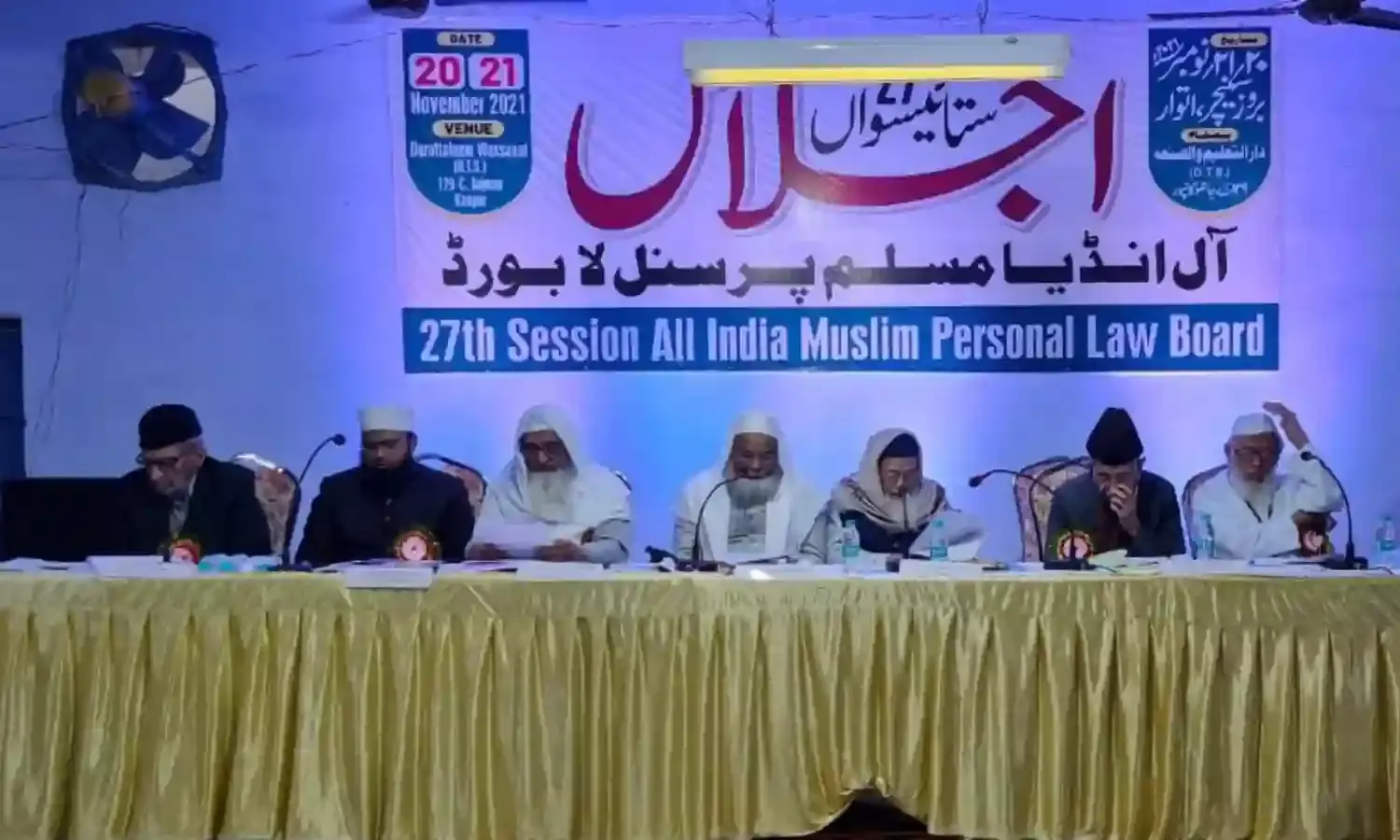Courts Should Stop Interpreting Religion: AIMPLB Demands Anti-Blasphemy Law, Opposes UCC

The All India Muslim Personal Law Board (AIMPLB), has passed resolutions in its 27th General Body Meeting held on the 20th and 21st of this month demanding an anti-blasphemy law in the country and opposing any attempt to bring a Uniform Civil Code.
"In our country, unfortunately, bad words are being spoken against Prophet Mohammed and the government is not taking any action. An anti-blasphemy law should be made in our country such that action would be taken if anything is said against a religious personality", said Dr Qasim Rasool Ilyas, a working committee member of the AIMPLB in a press conference held in Kanpur.
Qasim Ilyas also added that, "In a diverse country like India, UCC is neither desirable, advisable nor useful. If any attempt is made directly, indirectly, partially or fully, to bring UCC, it will not be acceptable to us and the same will be anti-constitutional".
AIMPLB also warned the Judiciary against interpreting religions in cases before it. "Courts are interpreting religion based on its own understanding. Government and Judiciary should desist from such interpretation and if any such issue arises, experts of religion should be consulted about interpretation", Qasim Ilyas said during the press conference.
Last week, the Allahabad High Court had passed an order directing the Central Government to constitute a commission for implementing the mandate of Article 44 of the Constitution of India.
Article 44 of the Constitution states that "The State shall endeavour to secure for the citizens a uniform civil code throughout the territory of India."
The High Court was dealing with a batch of cases where parties had contracted interfaith marriages and one of the parties to the marriage had converted to the religion of his or her partner.
Justice Suneet Kumar has stated in the said order that, "There is no evidence of any official activity for framing a uniform civil code for the country. A belief seems to have gained ground that it is for the minority community to take a lead in the matter of reforms of their personal law. That has been the consistent official stand of the Government within the country and in international forums. A common civil code will help the cause of national integration by removing disparate loyalties to laws which have conflicting ideologies. No community is likely to bell the cat by making gratuitous concessions on this issue. It is the State which is charged with the duty of securing a uniform civil code for the citizens of the country and, unquestionably, it has the legislative competence to do so. The Supreme Court speaking through Justice Kuldeep Singh had humbly requested the Government through the Prime Minister to intervene and initiate the process of framing the UCC by appointing a committee, but after a lapse of so many decades nothing has been done".

